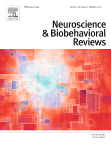 Hisashi Moriguchi, who retracted two papers last year because he and his colleagues could not “guarantee the accuracy of the results and conclusions,” has now had another paper withdrawn — at least temporarily.
Hisashi Moriguchi, who retracted two papers last year because he and his colleagues could not “guarantee the accuracy of the results and conclusions,” has now had another paper withdrawn — at least temporarily.
A notice on the paper, “Autologous human cardiac stem cells transplantation for the treatment of ischaemic cardiomyopathy: first study of human-induced pluripotent stem (iPS) cell-derived cardiomyocytes transplantation,” which appeared in BMJ Case Reports, now reads: Continue reading Dubious stem cell researcher Moriguchi notches temporary withdrawal, notice of redundant publication







